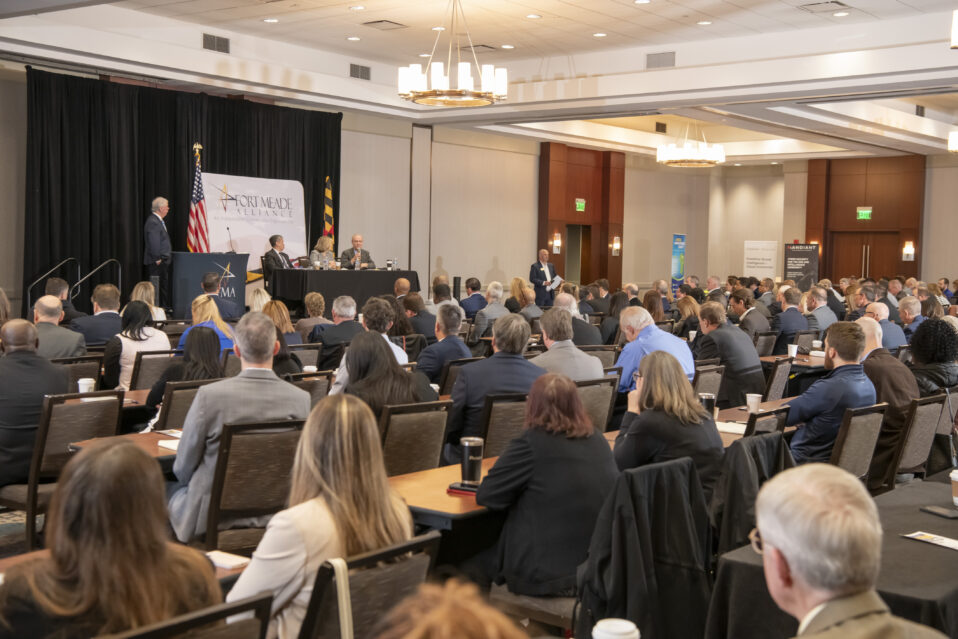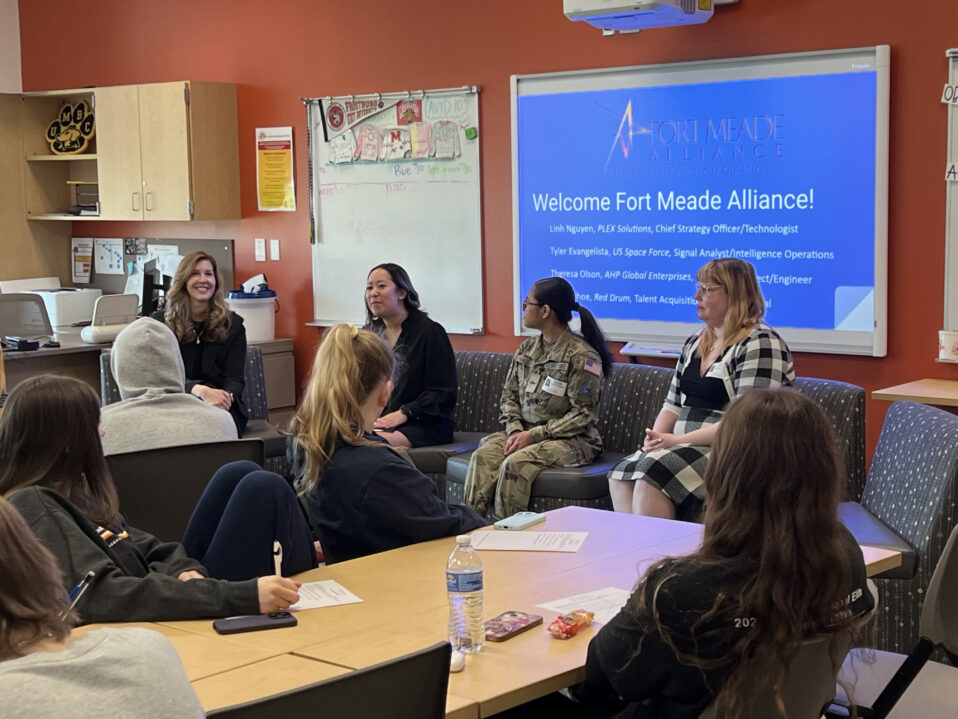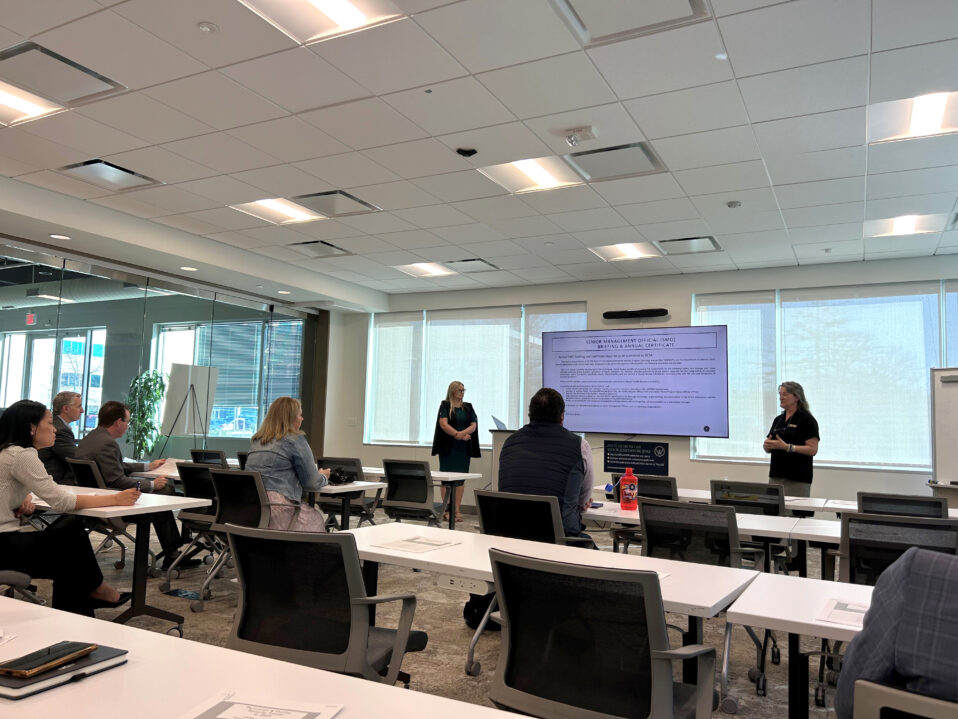
On Friday, November 12, the FMA wrapped our Cyber Pipeline Learning Series with a final session focused on recruiting (and training) diverse talent in the workforce. Building on themes from this past spring’s Cyber Workforce Shortage Forum discussion with Dr. Freeman Hrabowski, President of UMBC and Maureen McMahon, Deputy Superintendent of Anne Arundel County Public Schools, panelists engaged in a conversation about the types of diversity needed in the cyber workforce of the future.
“With the demand so great in terms of all of the unfilled cyber positions in the nation, our employer partners and hiring managers are looking at talent in places they hadn’t normally looked.”
–Kendra Parlock, NPower Maryland
Practitioners from the field representing workforce development, education and industry joined the conversation to share their own insights, best practices and challenges in bringing diverse candidates into the mix.
Kendra Parlock serves as the Executive Director of NPower Maryland, a branch of the national non-profit workforce development agency “on a mission to move people from poverty to the middle class through tech skills training and quality job placement.” Recognizing that the path to success may not always include a bachelor’s, NPower offers accepted participants a way to earn key certifications at no cost to themselves.
“With the demand so great in terms of all of the unfilled cyber positions in the nation, our employer partners and hiring managers are looking at talent in places they hadn’t normally looked,” Parlock said. In particular, NPower is “intentional about recruiting women and designing programing and outreach for our women. We have a goal to achieve 40% of women trainees by 2022.”
Parlock also mentioned the organization’s focus on transitioning military and veterans, noting that they often “bring a wealth of experience but not always a degree.”
“One of the things that we are trying to obtain are students that have a creative mind and interests that expand outside the cyber realm.”
–Tim Miles, SAIC
As the Dean of Technology at Anne Arundel Community College, Angelo Thalassinidis routinely works with non-traditional students, including veterans, first-generation college students and individuals transitioning careers.
From his perspective, “there is an equity gap on accessing emerging technologies” that leads to the shortages seen later in education and the workforce.
“If you don’t expose kids across different demographics to emerging technologies so you can plug the seed in their brain that says ‘ooh that is something I can do for a living,’ you are not going to get that inflow of students to reach the community college or any educational institution” Thalassinidis said.
He also notes that diverse populations often have different needs, particularly first-generation college students, who may not have context to know and understand the hidden codes and expectations of formal educational institutions. In these cases, students often don’t just need technical education, they also need explicit training in studying and other key skills that lead a student to success in college.
This past summer, Tim Miles, VP, MPO/USG STA Account for the National Intelligence Community Business Unit at SAIC hired an intern from Howard Community College who is enrolled in the FMA supported STEM Core Program. The candidate was not someone that they would have typically recruited, but it made them think differently about talent in many ways, including thinking about the skills that younger talent could bring to the workforce.
“One of the things that we are trying to obtain are students that have a creative mind and interests that expand outside the cyber realm,” Miles said. “Are they curious? Are they able to think differently? Are they able to step in and look at a problem and solve it from a different perspective?”
According to Miles, the additional benefit of bringing in younger talent, including community college students, is that the company can work with the student to help them gain a security clearance before they ever start full-time. It also builds brand loyalty, making it more likely that the student will accept a full-time position after their studies. And when they do, they already have context and training for the company and its work.
Did you miss one of our three sessions?
All three sessions were recorded and now available:



